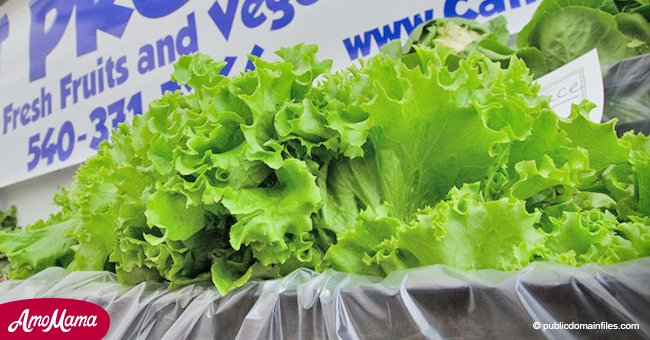
CDC warns people to stop eating romaine lettuce due to several incidents of contamination
More and more people are getting sick due to the E. Coli outbreak related to romaine lettuce, with 59 cases already registered across several American states.
According to the recent numbers, 23 victims have been hospitalized and two were diagnosed with kidney failure as a result of the bacteria.
The Centers for Disease Control and Prevention continue to urge people not the consume any products containing romaine lettuce, especially if they aren't labeled.
Follow us on our Twitter account @amomama_usa to learn more.
Labeling the products has been a measure used to prevent wasting freshly harvested romaine lettuce, which may be free of any type of bacteria, so consumers should carefully read those labels to know what they are buying.
Recently, seven more people have shown symptoms of E. Coli, increasing the numbers of consumers affected by the contaminated product.
EXTREME CASES MAY EXPERIENCE KIDNEY FAILURE
"People should avoid eating, buying or selling romaine lettuce from Monterey, San Benito and Santa Barbara."
The two cases of kidney failure, also known as hemolytic uremic syndrome, worries the health authorities because the damaged blood cells clog the kidneys' filtering system, resulting in a life-threatening scenario.
ONE OF THE CONTAMINATED SOURCES
So far, the CDC has managed to identify one of the farms responsible for the outbreak: the Adam Brothers farm, located in Santa Barbara, California.
No further details have been shared but officials were able to assess that the contamination was caused by a possible contact between the romaine lettuce and an agricultural reservoir found within the Adam Brothers property.
But, although the source was marked, health officials reminded everyone that the farm may not be the only source, which is why people should avoid eating, buying or selling romaine lettuce from Monterey, San Benito and Santa Barbara.
AN INCREASING NUMBER OF VICTIMS
Reports of an E. Coli outbreak started back in April when 35 victims were diagnosed with the bacteria; since then, more cases have been registered in California, Connecticut, District of Columbia, Florida, Illinois, Louisiana, Maryland, Massachusetts, Michigan, New Hampshire, New Jersey, New York, Ohio, Pennsylvania, Rhode Island and Wisconsin.
